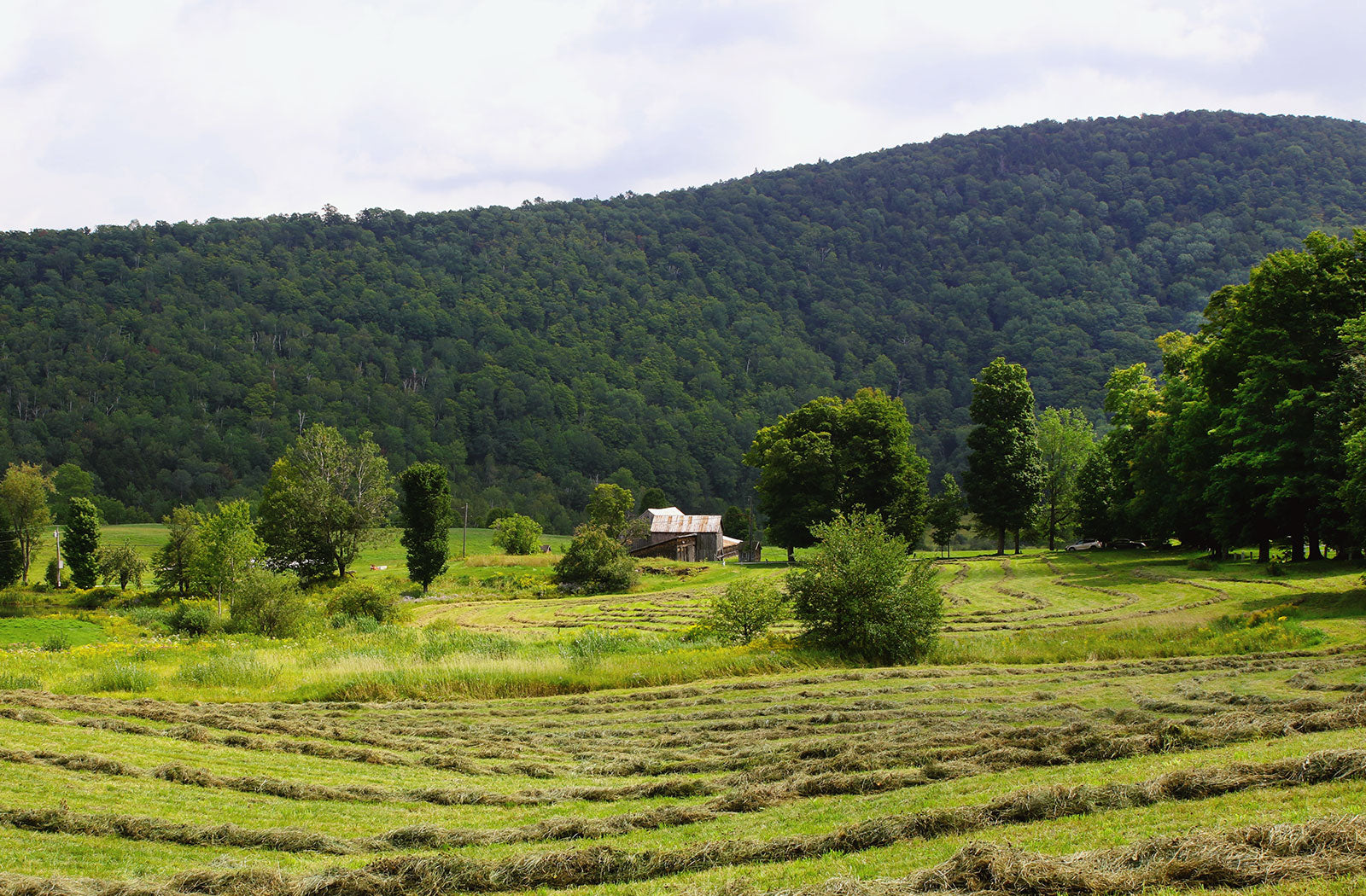
Photography by Lee Bilsky
It’s been a busy year at Plymouth Artisan Cheese, the award winning cheese factory situated at the edge of Vermont’s Calvin Coolidge Forest. Since earning a nod as one of Oprah’s Favorite Things last year, the ten person operation has been working overtime to produce their distinctively hand waxed, thoughtfully packaged, small batch raw cow’s milk cheeses.
Although a recent addition to the domestic artisanal cheese movement, Plymouth Cheese holds the title of second oldest cheese factory in the United States. In 1890, dairy farmer John Coolidge — father to one Calvin Coolidge, 30th President of the United States — established a dairy farm operation in Plymouth Notch, Vermont. Faced with an excess stock of milk and no way to store it (it would be another twenty years before modern refrigerators were readily available), the elder Coolidge adapted a traditional European recipe to turn that surplus into cheese.


Farmers walking cows along Messer Hill Road with the cheese factory visible in the background; the cheese factory today (top photo: Calvin Coolidge Memorial Foundation).


With just over 600 residents calling Plymouth home, solitude, and plenty of places to relax, abound; a neighboring sheep strikes a pose.
John Coolidge’s ingenuity evolved into a thriving business that continued to operate until the Great Depression. The factory remained shuttered until 1960, when John Coolidge, son of Calvin Coolidge, began producing cheese here again. His tenure would last until 1998, when the Coolidge family sold the property to the state of Vermont.
Cheesemaker Jesse Werner, a graduate of the University of Vermont's Institute of Artisanal Cheese, revived the Plymouth Cheese brand in its current incarnation in 2009, taking inspiration from the Coolidge family's European recipe to produce what he calls “American heritage cheese."
"We've revived the original 1890 recipe, as well as the traditional way the cheese was hand-dipped in wax,” comments Werner.



Cheesemaker Jesse Werner; a worker cutting cheeses into 8 ounce blocks; cheeses are sealed in wax, which locks in the intended flavor profile of each variety.
The factory debuted with Original Plymouth, a full bodied cheddar aged one year. Now seven years in, Werner also produces cave aged wheels, curds, and his signature flavored varieties. "Historically there were always flavored cheeses, like sage, caraway, and pimento," Werner reflects. Today’s flavors include hot pepper, garlic peppercorn, and hickory smoked cheddar. This summer Werner plans to introduce cheese flavored with black truffle as well as sambal, a hot relish of Southeast Asian origin.

Werner now designs and develops a broad range of raw milk cheeses, but the original Coolidge recipe remains central.


Plymouth’s packaging is inspired by historical cheese making equipment and stencils, many of which are housed in the factory’s museum.
The packaging method and labeling also take cues from the farm's past. Each flavor is hand dipped and sealed in its own distinctive, colorful wax — red for Original Plymouth, orange for Hot Pepper, purple for Sage & Herbs, and so on. The presentation is both striking and a practical means for maintaining the intended flavor profile of each cheese. "The waxing is very time intensive but it’s the traditional method and keeps the cheese really well," reflects Werner. "The idea is to give the customer a really nice artisan, handmade cheese in their local cooler case, perfectly cut and waxed."
Werner enlisted veteran designer Sarit Melmed to flesh out the branding and labeling. "She was very inspired by the graphic information that already existed at the factory — including the original 1890 Plymouth Cheese logo and actual brass stencils used for branding the cheese boxes." The result is at once historical and contemporary, with large, distressed type accentuated by glyphs derived from brass stencils once used to brand the factory's cheese boxes.


The factory includes a shop featuring locally produced goods; the view from the factory.
In addition to the factory, Plymouth Artisan Cheese is home to a museum that houses ephemera and predecessors to the equipment Werner uses today. Modern cheesemaking techniques aside, little has changed since Coolidge produced his first batch of cheddar, and Werner is eager to share his chapter in the Plymouth story with as many people as possible. "In ten years," Werner reflects, "the Plymouth Cheese factory will hopefully be one of the most visited spots in New England to learn about cheesemaking."
Plymouth Artisan Cheese, 106 Messer Hill Rd., Plymouth VT • 802.672.3650 • plymouthartisancheese.com